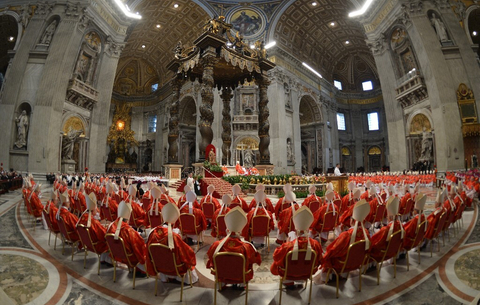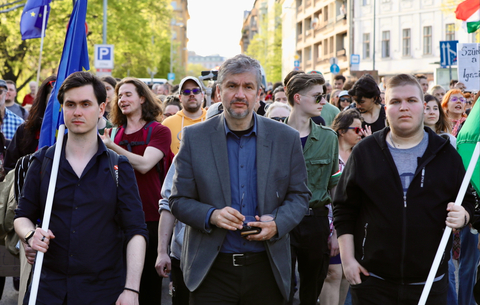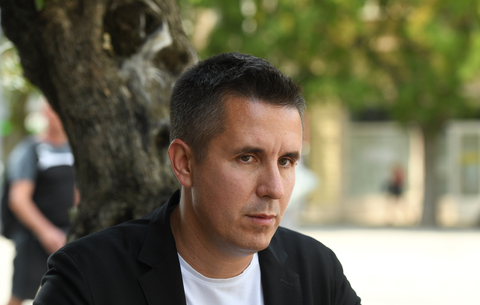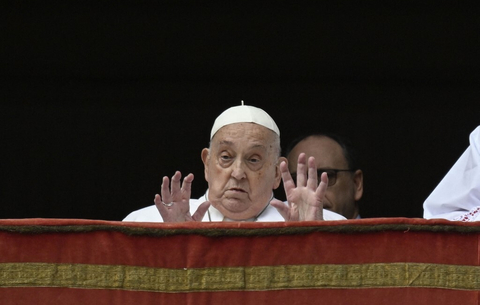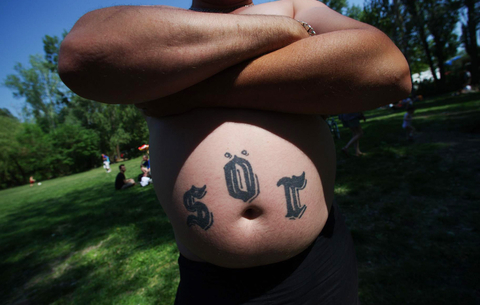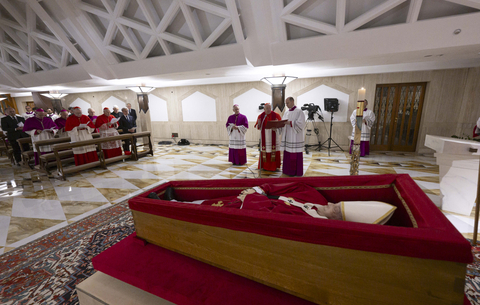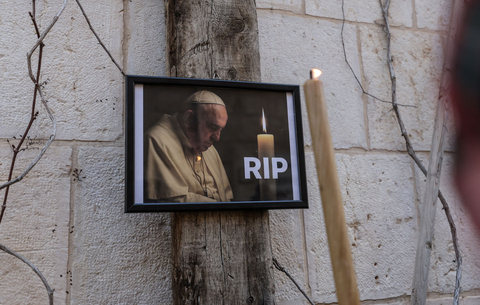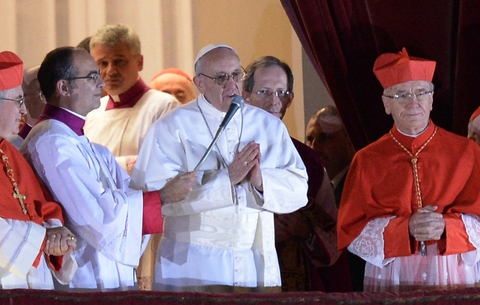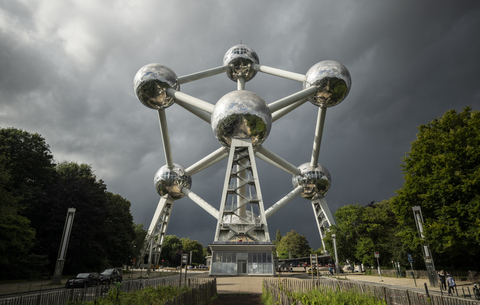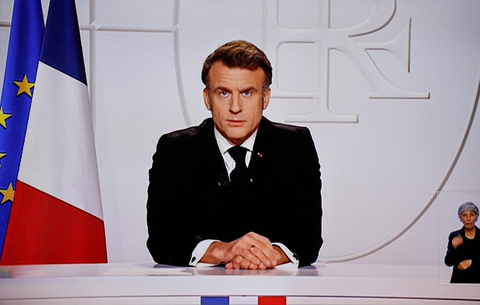Bearers of truth
After 66 years, the BBC will shut down its Hungarian broadcast in mid-December. The British broadcaster espoused the principle of "the truth is the best propaganda," but it would be too much to say that propaganda and objectivity never came into conflict in its programmes.
"The war has ended. What are we going to talk about now?" asked György Tarján, head of the BBC Hungarian Service in summer 1945. He was not the only one: at the time, the BBC was seriously wondering whether it should shut down its smaller foreign-language services. They had been launched to serve British war propaganda purposes early in the war, with the total number of services rising above forty in the later stages of the war. With the Germans' capitulation, they seemed to have lost their purpose.
The BBC's aim when it set up the broadcasts was to confront Goebbels's masterful propaganda machine with broadcasts that were rigorously objective even by British standards of the time. The watchwords of the Hungarian broadcast, which started up on September 5, 1939, were 'distance' and 'credibility'. In 1979, Ferenc Rentoul, who was the first announcer and who later headed up the Hungarian Service for 26 years, remembered his astonishment at being asked to read the news dispassionately. "The British air force has launched a bomb attack on a railway junction in Germany. The tracks were severely damaged in an attack from which eleven bombers did not return," he had to read. He once asked his boss: "If we want to drive a wedge between Hungary and the Germans, why don't we say that the enemy has suffered unprecedented losses during such-and-such an attack?" "Because it's not true," came the answer.
It can hardly be claimed that propaganda and truth never came into conflict. Take the case of Carlile Aymler Macartney, an Oxford historian who was known as a friend of the Hungarians. 'Elemér Mekkártni,' who spoke excellent if heavily accented Hungarian, read a weekly commentary on events on the broadcast for three years from 1940. His aim was to persuade the Hungarian elite of their own responsibilities, bringing them to rise up against the Germans. In April 1941 he said that though "Pál Teleki had sacrificed himself, one man cannot redeem an entire nation." In June he said: "Though Hungary was ordered, blackmailed into the war, Hungarian politicians should give up their fantasy that their nation is still independent."
Macartney's notes were regarded by the Czechoslovak government in exile as "support for the reactionary Horthy regime," and they felt the same about Pál Ignotus, the editor of a literary journal who had recently arrived in London and been recruited into the Hungarian service. Macartney justified his conciliatory attitude in a time of war in a self-defence that was only published in 1978. "Propaganda destined for Hungary is particularly difficult, because Germans can promise to fulfil certain of Hungary's national ambitions that the British are committed to denying." Macartney was removed not because of the protests, but because of higher political considerations. As Elizabeth Barker, a former director of BBC World Service news, wrote, in 1943 it was no longer necessary to persuade the politicians. Rather, it was necessary to convince the Hungarian population that, if they stuck to their bigoted anti-Soviet sentiment, then they could not count on America and Britain, the Soviet Union's allies.
Following the war, of course, it was precisely because of the Soviet Union that the Hungarian and other broadcasts survived. It emerged that in the new post-war order, it was necessary to combat new kinds of lies with trustworthy news. At the beginning of 1949, for example, the Hungarian service gave a live broadcast of Cardinal József Mindszenty's trial before a People's Court. Shortly afterwards, they printed the minutes of the trial in the so-called Black Book. On March 11, 1949, György Tarján addressed his listeners thus: "Please, read page 89 of the Black Book, and let us read the judge's third intervention at the bottom of the page." After reading the passage aloud, the Hungarian Service broadcast another quote from some months before. By comparing the two passages, the listener could tell that this was a show trial. They took a similar approach with the Rajk trial several months later. The consequences were the the BBC was barred from broadcasting trials in Hungary, and that Hungary made strenuous attempts to jam the broadcasts. Meanwhile, Radio Free Europe started broadcasting from Munich. Listening to either broadcast was declared a crime against the state in 1952.
The BBC's broadcasts differed in tone from RFE's fiercely anti-Communist broadcasts. In October 1956, RFE played a very ambiguous role. Few remember a bitter comment made on the BBC on October 26, 1956. "Seeing the heroic struggle of the Hungarian people, the most painful question is what can we in the West do? The sad answer is too little...It would be irresponsible of us, sitting hundreds of kilometres away, to encourage people to shed their own blood in a struggle in which we can play no active role."
A programme on the tenth anniversary of the 1956 uprising caused a stir in Hungarian government circles as well. "The People's Republic of Hungary cannot accept the argument that the government of the United Kingdom and its authorities can exert no influence over the BBC's and other British broadcasters' editorial decisions," said a typically Kádár-era letter - showing that commemorations by the BBC were more painful than those from other organs, which could easily be dismissed as imperialist mouthpieces.
It is hard to estimate the size of the Hungarian Service's audience over sixty years, though many have tried. Gabriella Gera, a BBC employee who is writing a book on the history of the Hungarian Service, told HVG that in 1943-44, some 40 per cent of Hungarian radio listeners followed foreign broadcasts, or around a million people. There are no figures on how many of them were listening to the BBC, however.
Nobody had any precise figures until the mid-1980s. A secret report to the Communist Party leadership in 1985 regrets that "individuals who listen to Western radio broadcasts seem to be better informed and more up-to-date than party members entrusted with mass political and ideological education." The same report says that around a fifth of the adult population listened to RFE regularly, with around 6-7 per cent listening regularly to the BBC - around half the number who listen regularly today, according to the editorial team.
The BBC's aim when it set up the broadcasts was to confront Goebbels's masterful propaganda machine with broadcasts that were rigorously objective even by British standards of the time. The watchwords of the Hungarian broadcast, which started up on September 5, 1939, were 'distance' and 'credibility'. In 1979, Ferenc Rentoul, who was the first announcer and who later headed up the Hungarian Service for 26 years, remembered his astonishment at being asked to read the news dispassionately. "The British air force has launched a bomb attack on a railway junction in Germany. The tracks were severely damaged in an attack from which eleven bombers did not return," he had to read. He once asked his boss: "If we want to drive a wedge between Hungary and the Germans, why don't we say that the enemy has suffered unprecedented losses during such-and-such an attack?" "Because it's not true," came the answer.
It can hardly be claimed that propaganda and truth never came into conflict. Take the case of Carlile Aymler Macartney, an Oxford historian who was known as a friend of the Hungarians. 'Elemér Mekkártni,' who spoke excellent if heavily accented Hungarian, read a weekly commentary on events on the broadcast for three years from 1940. His aim was to persuade the Hungarian elite of their own responsibilities, bringing them to rise up against the Germans. In April 1941 he said that though "Pál Teleki had sacrificed himself, one man cannot redeem an entire nation." In June he said: "Though Hungary was ordered, blackmailed into the war, Hungarian politicians should give up their fantasy that their nation is still independent."
Macartney's notes were regarded by the Czechoslovak government in exile as "support for the reactionary Horthy regime," and they felt the same about Pál Ignotus, the editor of a literary journal who had recently arrived in London and been recruited into the Hungarian service. Macartney justified his conciliatory attitude in a time of war in a self-defence that was only published in 1978. "Propaganda destined for Hungary is particularly difficult, because Germans can promise to fulfil certain of Hungary's national ambitions that the British are committed to denying." Macartney was removed not because of the protests, but because of higher political considerations. As Elizabeth Barker, a former director of BBC World Service news, wrote, in 1943 it was no longer necessary to persuade the politicians. Rather, it was necessary to convince the Hungarian population that, if they stuck to their bigoted anti-Soviet sentiment, then they could not count on America and Britain, the Soviet Union's allies.
Following the war, of course, it was precisely because of the Soviet Union that the Hungarian and other broadcasts survived. It emerged that in the new post-war order, it was necessary to combat new kinds of lies with trustworthy news. At the beginning of 1949, for example, the Hungarian service gave a live broadcast of Cardinal József Mindszenty's trial before a People's Court. Shortly afterwards, they printed the minutes of the trial in the so-called Black Book. On March 11, 1949, György Tarján addressed his listeners thus: "Please, read page 89 of the Black Book, and let us read the judge's third intervention at the bottom of the page." After reading the passage aloud, the Hungarian Service broadcast another quote from some months before. By comparing the two passages, the listener could tell that this was a show trial. They took a similar approach with the Rajk trial several months later. The consequences were the the BBC was barred from broadcasting trials in Hungary, and that Hungary made strenuous attempts to jam the broadcasts. Meanwhile, Radio Free Europe started broadcasting from Munich. Listening to either broadcast was declared a crime against the state in 1952.
The BBC's broadcasts differed in tone from RFE's fiercely anti-Communist broadcasts. In October 1956, RFE played a very ambiguous role. Few remember a bitter comment made on the BBC on October 26, 1956. "Seeing the heroic struggle of the Hungarian people, the most painful question is what can we in the West do? The sad answer is too little...It would be irresponsible of us, sitting hundreds of kilometres away, to encourage people to shed their own blood in a struggle in which we can play no active role."
A programme on the tenth anniversary of the 1956 uprising caused a stir in Hungarian government circles as well. "The People's Republic of Hungary cannot accept the argument that the government of the United Kingdom and its authorities can exert no influence over the BBC's and other British broadcasters' editorial decisions," said a typically Kádár-era letter - showing that commemorations by the BBC were more painful than those from other organs, which could easily be dismissed as imperialist mouthpieces.
It is hard to estimate the size of the Hungarian Service's audience over sixty years, though many have tried. Gabriella Gera, a BBC employee who is writing a book on the history of the Hungarian Service, told HVG that in 1943-44, some 40 per cent of Hungarian radio listeners followed foreign broadcasts, or around a million people. There are no figures on how many of them were listening to the BBC, however.
Nobody had any precise figures until the mid-1980s. A secret report to the Communist Party leadership in 1985 regrets that "individuals who listen to Western radio broadcasts seem to be better informed and more up-to-date than party members entrusted with mass political and ideological education." The same report says that around a fifth of the adult population listened to RFE regularly, with around 6-7 per cent listening regularly to the BBC - around half the number who listen regularly today, according to the editorial team.
